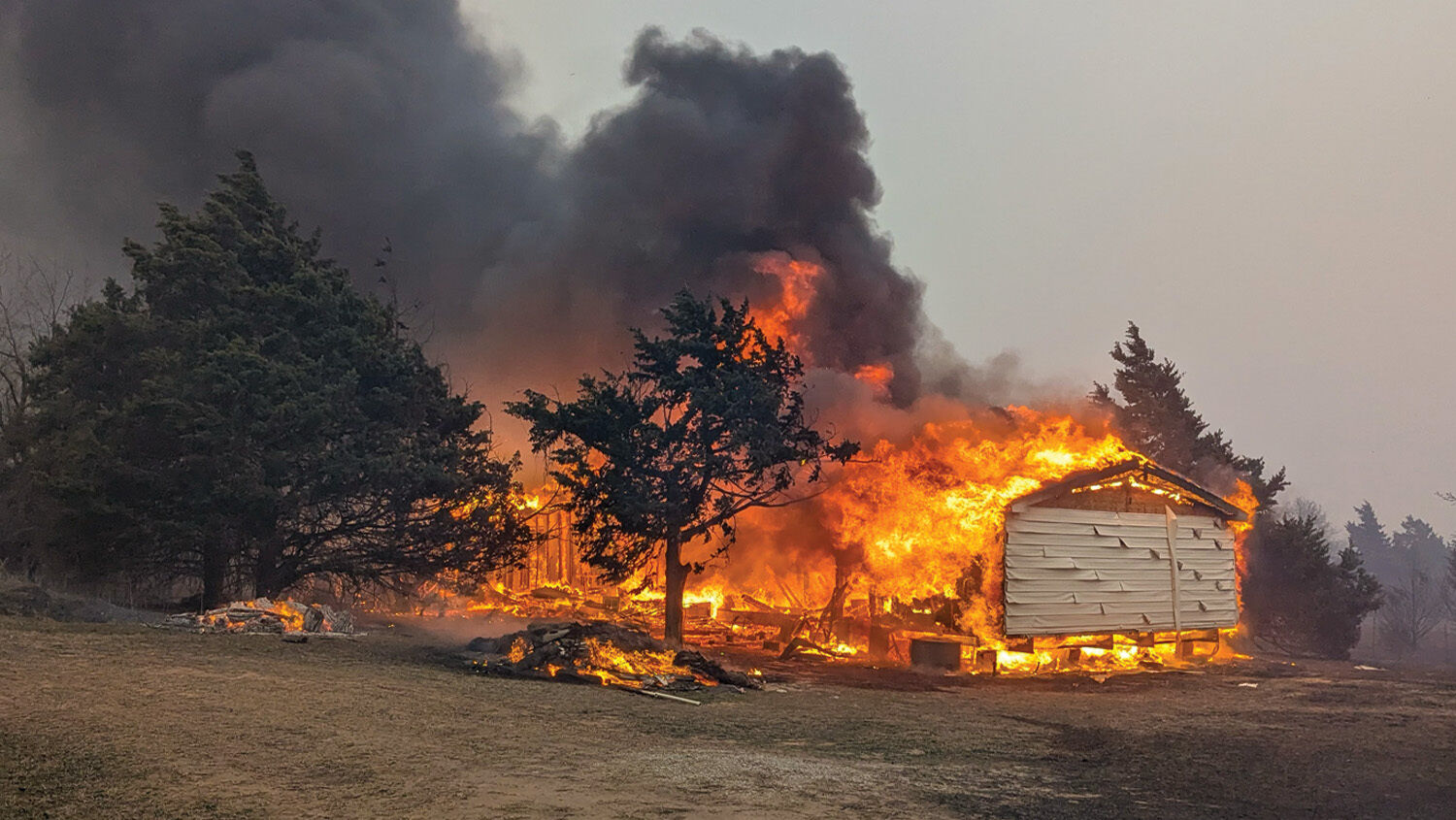Seeing God in the Fire

Seeing God in the Fire
March wildfires here in central Oklahoma left four people dead and at least 200 injured. A violent storm came sweeping down the plain on March 14; flames incinerated 170,000 acres and more than 200 homes. I was at the Trumpet offices in north Edmond finishing an article when my roommate came to my office and told me that the house we were renting in Guthrie was in the high-risk zone, so I drove up there to get some things for the evening. I was about to see something I never thought I would see and learn an important lesson about why God allows disasters.
By the time I arrived, the nearby field was burning with 10-foot flames that were spreading toward the house. I dashed inside, grabbed my satchel with my Bible and computer, and put them in my truck. I turned around to head back in, but the driveway was filled with smoke and burning embers. I got in my truck to drive through the smoke, but it was too thick.
I drove back toward the house, but the first flames had now reached it. I decided not to risk going back in for other belongings. When the yard had burned down a bit and some of the smoke cleared, I drove down the driveway to safety. When I arrived at my neighbors’, we realized that the heat and embers were so bad that some logs in my truck bed had caught fire, but we were able to extinguish them.
Forty minutes later, I went back. The field had burned to ash, and the house was engulfed in flames. All I could do was watch it burn and kick myself for not grabbing my passport, truck title, scuba gear, hiking backpack, The Lords of Avaris and other favorite books.
After a night at my sister’s house on an air mattress next to my nieces’ dollhouse, I returned to see that everything that had been a house—shingles, rafters, joists, pipes, wiring, furniture, clothing, paintings—was now a roughly rectangular 18-inch-high lumpy pile of dark ash in a field of light ash. I found my cast iron skillet and left.
I am definitely more fortunate than most of the people who lost homes in the recent catastrophe, since I have both savings and a house that I had been renting out that I can move into. Plus, many friends of mine have generously donated clothes and gift cards to make the next month easier. Yet disasters like this that even temporarily overturn your life definitely get your attention.
Here at the Philadelphia Trumpet, we have likened wildfires and other disasters to God’s bullhorn. God says that He actively controls His creation, including weather patterns (Job 38). Blizzards, droughts, earthquakes, hurricanes, windstorms and wildfires are not random happenstance. God allows them in order to get people’s attention.
Oftentimes, God allows disasters as a curse for sin. God says in Isaiah 29:6, “You will be punished by the Lord of hosts With thunder and earthquake and great noise, With storm and tempest And the flame of devouring fire” (New King James Version). This is why natural disasters tend to increase when societies turn away from God and His laws.
Sometimes, natural disasters occur to build our patience and faith.
God tells us that fiery trials are a tool He uses to build character in His people (1 Peter 4:12) and that we should rejoice in our trials, because the trying of our faith builds patience and endurance (James 1:2-4).
In some cases, disasters can precede greater blessings. After fire from heaven killed Job’s children, servants and livestock, and after Job repented, God blessed him with twice as much as he had before (Job 42:10). Certainly, someone like me would hope for that outcome in particular, but there’s a much more important outcome that I and every such victim need far more.
The main lesson we must learn is to see God in the fire!
Disasters are not random accidents. God knows every sparrow that dies (Matthew 10:29-31). He is well aware of exactly how fires, storms and other massive disasters affect every human victim. He allows these things to happen for a reason. He wants victims to stop and think what this reason could be. He wants our attention; He wants us to overcome our sins; He wants us to rely on Him for our every need.
Regardless of the trial, the biggest mistake you can make is to ignore it or dismiss it as mere random chance. Disasters are getting worse. But many of those who look at these tragedies and even those who suffer them fail to see God in the fire. They instead blame carbon emissions, climate change or happenstance. They focus on politics, disaster services and how confusing and unfair it all is, ultimately moving on with their lives without learning the real lessons. Sadly, this means that such disasters will continue getting worse until we wake up to the fact that God is trying to get our attention!
